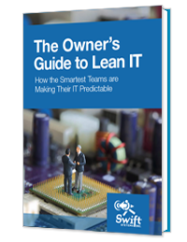
How to Ensure Your IT Systems are GMP Compliant
Good manufacturing practices.
It’s a simple name for a far-reaching standard. The language sounds straightforward enough; after all, who wouldn’t want their manufacturing processes to be “good”? The reality of adherence is a little bit more complex, though.
And maintaining compliance is important. On a legal level, compliance is necessary in order to pass inspections, avoid fines, and, in worst-case scenarios, avoid criminal repercussions. On the level of basic human health, maintaining compliance is important, too. Manufacturing errors in pharmaceutical products can make drugs unsafe and cause harm to consumers.
Compliance to GMP helps to avoid that outcome. With that in mind, let’s dive into what exactly good manufacturing practices entail, with an eye toward IT compliance.
What are the good manufacturing practices?
To start, let’s revisit the basics: what exactly are good manufacturing practices?
From a high level, GMP guidelines exist to “provide guidance for manufacturing, testing, and quality assurance in order to ensure that a manufactured product is safe for human consumption or use.”
That’s the purpose. At a slightly more granular level, that purpose is accomplished through things like:
- Maintaining hygiene through the production process
- Ensuring controlled environments to prevent cross-contamination
- Thoroughly documenting all processes
- Providing adequate training for operators
- Performing proper quality assurance
- Creating records of production to track compliance
- Creating a system for potential product recalls
And more. Adherence requires a consistent commitment to detail.
What is cGMP?
There’s another acronym at play, too. The cGMP seems to offer additional levels of complexity for pharmaceutical manufacturers to consider. It’s a common question: what’s the difference between GMP and cGMP?
In practicality, the answer is that there really isn’t a difference. The “c” in cGMP stands for “current.” It was added to the acronym to emphasize the developing nature of processes in the United States; the point is, essentially, that updates to standards and changes in technology can render previous compliance efforts ineffective, so manufacturers should strive to keep compliance current.
This speaks as much to technological changes as to anything else. Generally, technological change outpaces any changes to standards. That can result in a lack of urgency as manufacturers put off updates. Yet it’s wise to implement current best practices even when the standards lag a bit behind, because catching up is more difficult and dangerous than taking a proactive approach.
How do the standards affect IT systems?
So, that’s what GMP and cGMP mean – but in an IT capacity, what do they look like? We believe that GMP should impact both your IT strategy and your IT systems.
From a strategic IT perspective, GMP (and cGMP, especially) requires a proactive approach to IT, because it requires systems to be kept current.
Traditionally, companies have been more reactive, often taking a “wait-till-it-breaks” approach in an attempt to kick the can on cost. In reality, this has never been wise; it almost always leads to bigger issue, and it precludes continual improvement. Because of demand, though, entire IT support models were based around reactive strategies.
Because GMP requires manufacturers to stay consistently updated with best practices and maintain current systems, a proactive approach is better. Managed IT services can help with this.
From an IT systems perspective, GMP compliance can have broad ramifications, depending on the technology being used. Nearly all manufacturing systems have information technology components that require consistent maintenance for compliance.
More specifically, record creation, tracking, and storage can have IT system ramifications. Depending upon the manufacturing processes, records can involve large amounts of data; GMP compliance mandates that this data be stored securely and with proper access, which means that IT systems must be configured and maintained accordingly
The bottom line is that GMP compliance means negating systems issues – ideally, proactively.
How can you stay compliant?
Yes, GMP compliance is important, and IT support plays a critical role. For manufacturers looking to ensure compliance, choosing managed IT services is a good place to start.
Managed IT services allow providers to shift from fighting fires to preventing them altogether by using a fixed-rate model. This way, instead of being paid to fix broken systems (which incentivizes longer and less-effective solutions), IT teams are paid to keep systems from breaking.
Regulations or not, that’s a good manufacturing process.
Want to learn more about how managed IT services can help you incorporate and adhere to GMP? Want to stop worrying about how GMP affects your IT?
Get in touch with us for a free consultation today, and take the first step toward stress-free IT.

IT systems are foundational to modern businesses. Too often, that foundation is unsteady. Unpredictable outages, insecure networks, and unreliable performance from mission-critical systems can jeopardize your entire business.
There’s a better way. Learn how.
Get in touch with us for a free consultation with one of our technical experts. We’ll review your current systems, assess your needs, and identify the coverage options to best meet them.
Get in touch with us by phone:


